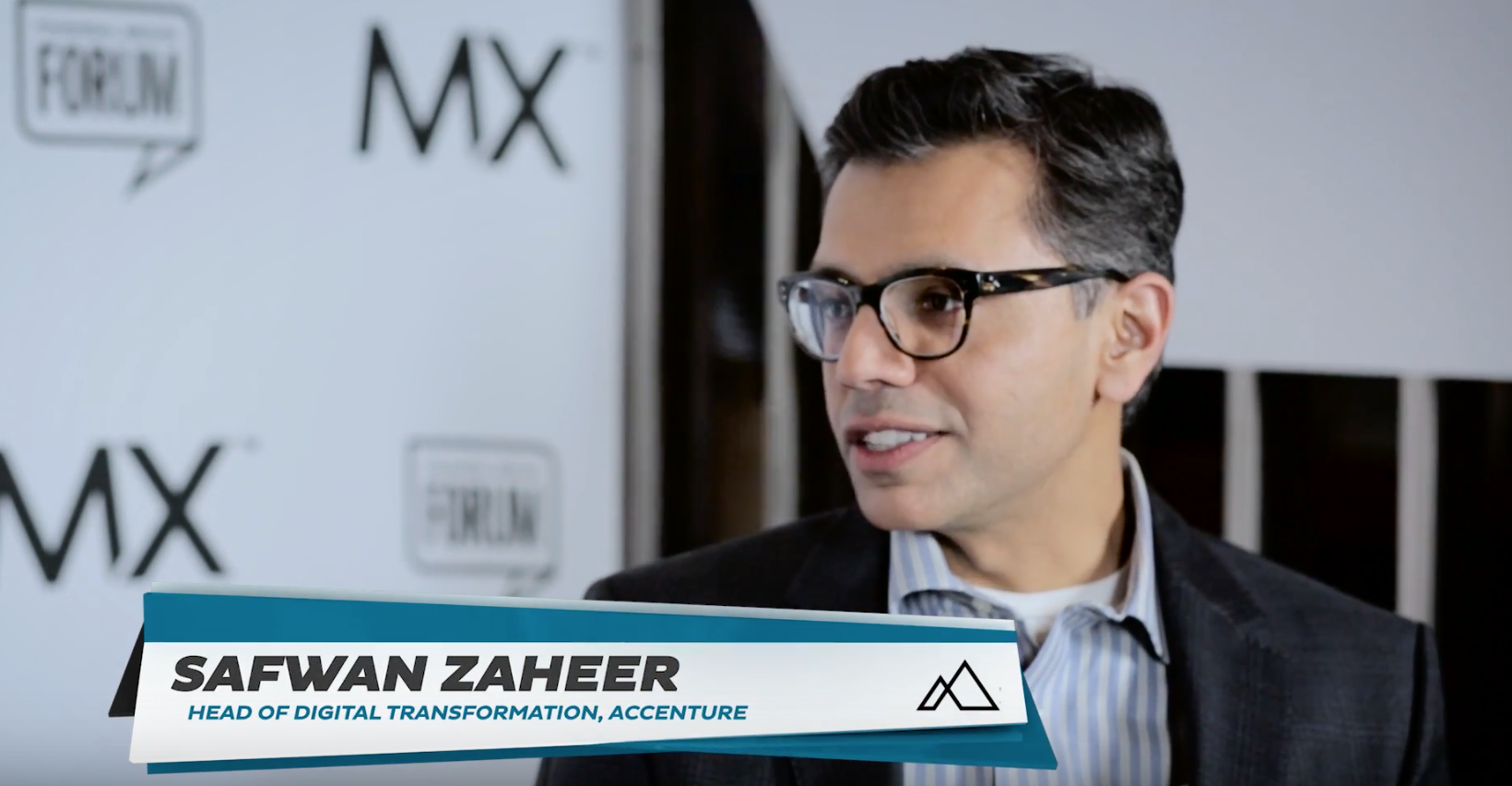How Financial Institutions Can Leverage AI While Maintaining the Human Touch
June 5, 2025 | 2 min read

 Blog
Blog
June 14, 2016|0 min read
Copied

We interviewed Safwan Zaheer, Head of Digital Transformation at Accenture. You can watch the interview above or read the transcript below:
I think banking is going through a transformational change. Uber is not only a car company, but it’s on its way to becoming the largest aggregator of debit accounts. So if a driver does not have a banking relationship, Uber signs up a debit card for that driver. A coffee company (Starbucks) is running one of the largest mobile payments solutions in the world. Facebook’s Messenger platform is allowing consumers to transact and settle their IOU balances. With their recent AI bots initiatives they’re inviting banks to insert customer service for the consumers to be contained in that environment. So what’s stopping them from pursuing other banking opportunities?
The implications for banks and credit unions are that they need to embark on a digital transformation journey. It has to be transformational instead of incremental. Today banks are focused on products — they launch an app, they launch a nice looking website, maybe sign up for Apple Pay, but underneath these steps there is a lack of a cohesive approach and tactics behind their overall transformation journeys.
There are three.
First, typically banks have a very short-centered view to their PNLs. They have to meet their numbers, they have to run their business, they’re answerable to Wall Street — which are all good things. But sometimes in their pursuit of short-term objectives they lose track of the bigger, bolder next steps. So that leads to misalignment.
Second is regulation. I’m a big fan of regulation and compliance generally, but banks are completely focused on how they cope with regulation.
Third, basically banks are confused. There’s lots happening in the space. Two or three years ago it was the era of wallets. Today we are talking about blockchain. So frankly they’re confused and they don’t know how to navigate this space. They are looking for trusted advisors to help them navigate their space.
Yeah, there’s a lot happening right now. So it’s hard to know exactly where you should go.
Exactly.
Focusing on numbers needs to be a critical part of their daily activity, but there needs to be a parallel path. While the current business is running and flourishing (and frankly, it’s important) so they can pay their bills and continue to employ people, they need to embark on a digital transformation journey, which really encompasses four key high level objectives.
First, you want to look through your corporate tactics and seeing how you can cope with some of the disruption that’s happening in the market.
Second, you want to develop a digital transformation agenda, which is a blueprint of the organization. This focuses more not only on overall tactics and strategies but also consumer journeys and what your technology and architecture is going to look like and answers how you’re going to set up your investments in startups in partnerships.
Third, you want to look at the governance model. You want to ask how you structure your organization to succeed? Having worked for a big bank and consulted for many leading banks, I can tell you that’s an element they’re missing. There’s shared resources from IT and other parts of the organization, there are siloed teams, and that model in our experience hasn’t worked. So you have to figure out a governance model that will succeed.
Fourth, you have to look at tactical execution. It typically starts with three-year journeys focused on consumer experiences and digital products, and you go out and do some experimentation.
Absolutely partners. I think they are collaborators. In many ways I feel the two, banks and fintech startups complement each other. Banks have a consumer base, they know how banking is done, and importantly they know how to conform to regulations — which startups don’t know. Look at Lending Club, for example. Lending Club is currently facing a lot of challenges due to their mismanagement of loans.
So the two can come together, and the two can create propositions that I feel can be pretty successful in the market.
Going forward what do you think banks should keeping their eye on.
They need to embark on a transformational journey. Focus less on apps and products and signing up for Apple Pay — these kind of siloed efforts — and focus on the big picture. Drive organizational change from the top down.
I’m talking about a shift in strategy. It doesn’t have to be a 180-degree shift in culture. It has to start from an approach that typically comes from the C-suite down to the operational folks. And you need to embrace something which startups have been doing, which is test and experimentation and design thinking and not being afraid.
June 5, 2025 | 2 min read
Feb 18, 2025 | 1 min read
Jan 30, 2025 | 2 min read
